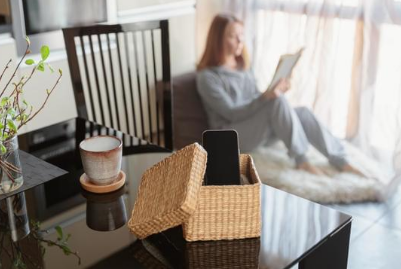''If only I had more time I would be in such good shape.''
''There are never enough hours in the day to get everything done.''
''Who has time to prepare a healthy home cooked meal?''
Any of these comments sound familiar? Have you said or felt these sentiments? Probably so.
It seems our world keeps spinning faster and faster and our to-do lists keep getting longer and longer. No matter how good we are at time management, there never seem to be enough hours in the day to get it all done. At some time or another, we could all really use a 25th hour!
Sadly, it just can’t be done. No matter how hard we try, there are only 24 hours in a day. But what we can do is find what our time drainers are and figure out how to eliminate them, thus reclaiming a lost hour of our day. The good news is, with some thought and planning, it can be done.
Over this past year, I’ve put myself and some clients to the challenge of reclaiming 60 minutes of time that would normally slip away each day. We decided to track our activities for a week and learn where we were wasting time and how to avoid doing so, and then take that found time (which, by the way, typically added up to more than an hour) and spend it on ''me'' time.
How everyone spent that extra hour was as much fun as discovering how to claim it. Exercising, experimenting with new healthy recipes, sleeping, curling up in bed with a great book, walking after dinner and even visiting a spa were amongst the healthful choices. The important thing was that everyone found a way to use the time to relax, de-stress, and rejuvenate.
Here are 7 simple ways to find your 25th hour.
When it comes to technology, rules rule!
By far, one of the greatest time wasters is checking email, engaging in social media and ''playing around'' on the computer. Technology is supposed to make our lives easier, but for way too many, it’s just the opposite. Instead of using it to our advantage, it’s become our detriment. In my findings, the average individual checked their email 11 times a day! The problem with this is that we spend more time responding, deleting, reading, surfing, etc. than getting our more important priorities taken care of. It may take some practice, but when you create some rules governing your use of the computer, emails, and text messages, you’ll be shocked at how much time you will free up. Here are some suggestions:
- Shut the alert signal off on your computer that tells you when a new email has come through. Even better, adjust your preferences so that new mail is only delivered once an hour.
- Determine a maximum amount of times to check emails each day. For me, it’s four: Once at 8 a.m., right before I break for lunch, again at 5 p.m., and lastly before shutting the computer off at 9 p.m. Now don’t get me wrong; I love checking emails while in line at the grocery store or waiting in the dentist office. It’s great to clear out the garbage, or send off a quick response. But when I’m in my office or at home with the family, rules rule!
- When you do check emails, handle them immediately. Respond, delete, or file it away for later.
- If you love to play computer games, Google the news, or find the latest online shopping sites, that’s fine. Create a designated time to so, and set an alarm to let you know when time is up.
- Shut down your computer and all other technology at least one hour before bedtime. You will fall asleep more easily, and will sleep more soundly, too! Even better, declare one technology-free day every weekend. Could you imagine how much more free time you would have that day?
Stop multi-tasking.
As counterintuitive as it may seem, multi-tasking is a time-waster rather than a time-saver. We may think we are gaining time by handling more than one task at once, but it’s just an illusion. Since we aren’t fully focused on any one thing when we multi-task, each individual task takes longer to finish. This lack of focus leads to more errors, which then, of course, take more time to correct. You will be shocked at how much faster you complete a job when you turn off all distractions, and stay laser focused on what you are doing.
Please note I’m not suggesting there is never a place for multi-tasking; however, it should not be done with the things that are really important. Go ahead, watch TV while folding laundry, or talk on the phone while chopping veggies (just make sure to use a hands-free headset). If you’re working on an important project for business, writing an email or scheduling an appointment, don’t also be checking text messages, or trying to have a meaningful conversation with your child. For sure, one task or the other will suffer.
Delegate, delegate, and then delegate some more.
It’s shocking how many things we burden ourselves with that we could be delegating to others. We all want to be able to ''do it all," but sometimes, it's just not efficient! To begin with, start asking for help-- your family members or co-workers can’t possibly know you need assistance if you don’t ask.
Couples and roommates alike quickly tend to fall into routines around who is responsible for what tasks. That doesn’t mean things can’t be renegotiated, especially in special cases, such as when a stay-at-home mom decides to return to the workforce. Handling all household responsibilities may be fine when home all day, but not so when at an office from 9 to 5.
When it comes to household chores, even young kids can help out. You will save tons of time if you have other family members set and clear the table, take out garbage, and put dirty clothes into the laundry. If your adolescent drives, tell them that they must earn the privilege of using the family car by helping you with errands such as banking, dry cleaning or dropping younger siblings at after school programs. This is a win-win situation, as it gives you more time and also teaches your child about respect and responsibility.
Bunch your chores together.
In the course of a week, we all have a myriad of chores that must get done. Just as we think we’ve crossed the last one off the list, another appears. The best approach is to take care of the chore as soon as you have a free moment. The problem with that approach is that you’ll be back and forth, in and out of the car, and rushing to squeeze it in between your next commitment. The movement to and fro adds up to an enormous waste of time. At the beginning of each week, create a list of all those things you need and want to accomplish that require leaving your home or office to get them done. Then, assign a block of time to do them all together, planning your route in a way that make sense based on where everything is located.
Don’t make grocery shopping a daily event.
One of the greatest time wasters is multiple visits to the supermarket. There are many folks who give absolutely no thought in advance as to what they’ll be preparing (or picking up) for dinner. Almost every night they need to run out for groceries or to pick up convenience food for dinner. These are the very same folks who insist they have no time for meal planning or cooking, and then bemoan how difficult it is to have healthy meals for dinner. Don’t you be one of them! You’re working way too hard on your wellness goals to let this time management problem derail your efforts.
Give this a try: Take 20 minutes at the beginning of the week to create a meal plan; this can also double as a fun time to peruse new recipes! Then, create a grocery list so that you’ll be able to buy everything you’ll need for the week in one visit to the supermarket. Leave your meal plan posted on the fridge and check it in the morning so you won’t forget to defrost items you may need that are in the freezer.
By shopping from a list, you'll save money, conserve gas by avoiding multiple trips, and save time that you can use to prepare healthy meals. And let’s not ignore the reduced stress levels you'll experience when you no longer have to ask that panicked 5 p.m. question: ''What am I going to make for dinner tonight?''
Clean, chop and cook once; enjoy twice.
When you do take the time to cook, pretend you are preparing for a party. Once you are already set up with the utensils and equipment you need, why not make enough for multiple meals? Although it might take a bit longer in the kitchen, it will save you enormous amounts of time throughout the week. Cut up veggies and store them in produce containers for a few nights' worth of salad. As far as main dishes go, casseroles, soups and chili all freeze beautifully. Cook enough to put half in the freezer for future dinners, or portion it out into individual freezer containers to bring lunch to the office. By using this approach, you'll only have one major clean-up and will save yourself lots of time throughout the week.













